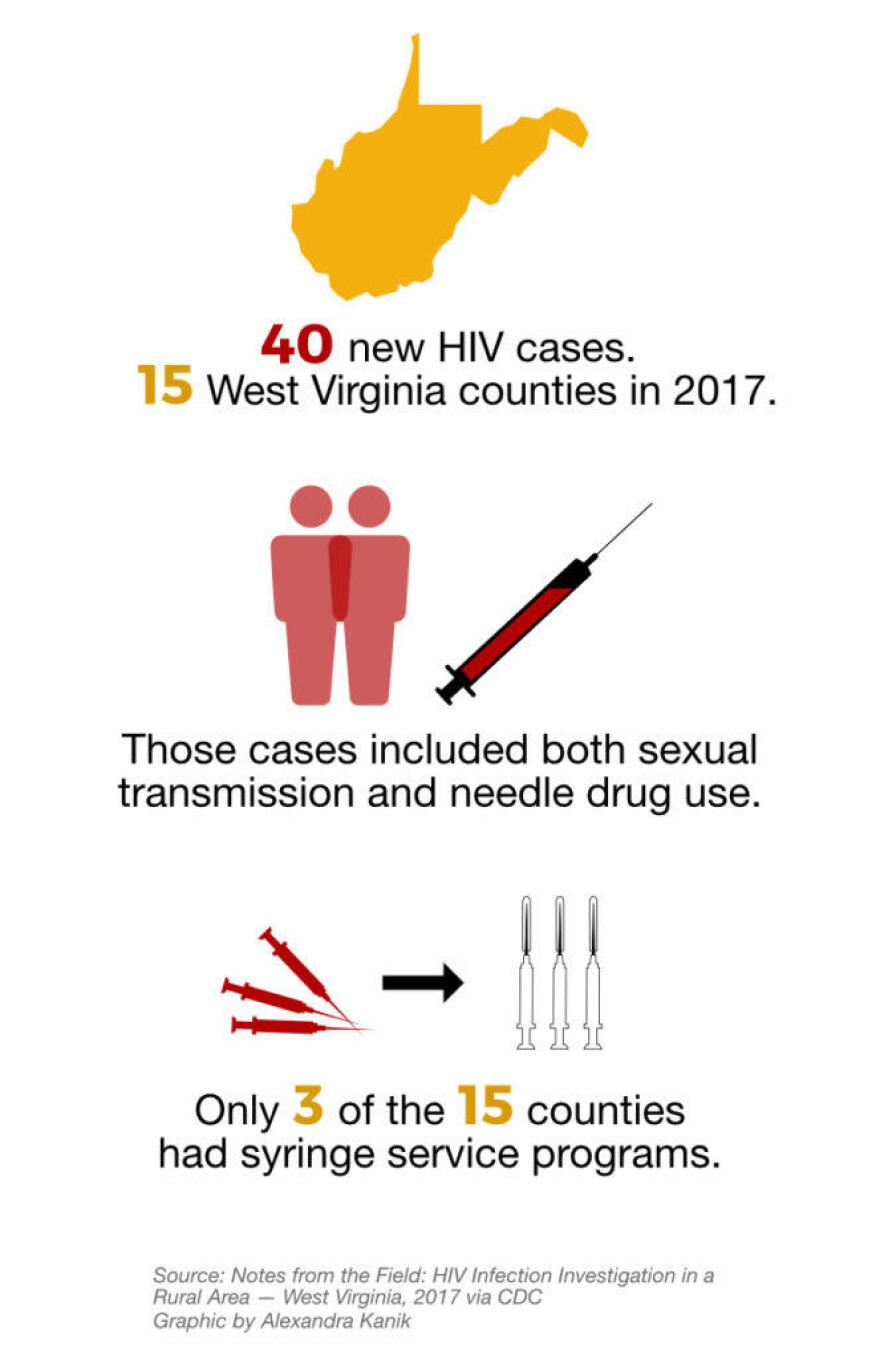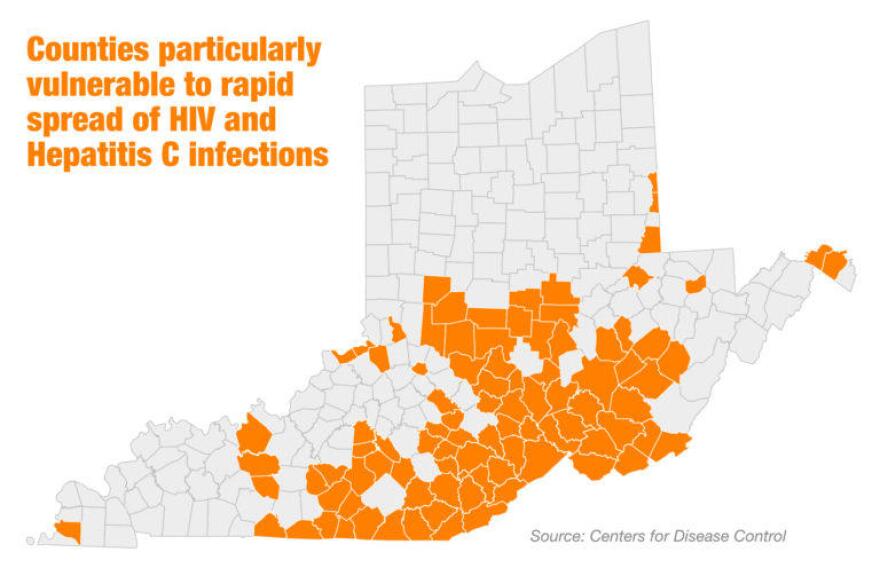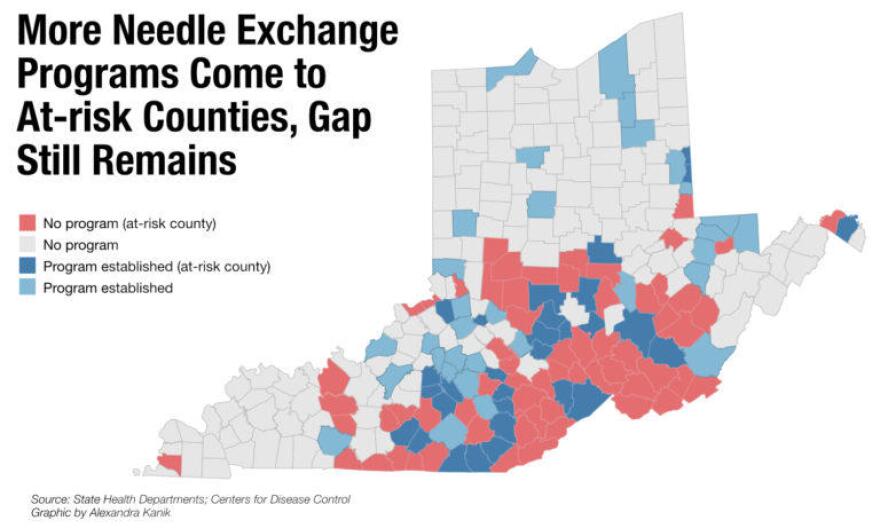The 10 counties in the United States most at risk for an HIV outbreak are all in Central Appalachia, according to a 2016 report by the Centers for Disease Control and Prevention.
Compiled after a 2015 outbreak of the disease in southern Indiana, the report found that places with a combination of high poverty, low access to health care, and rampant intravenous drug were mostly likely to experience a similar outbreak of HIV and hepatitis C.
This week on Inside Appalachia we explore how community members in the region are coping, and what resources are available to to help prevent the spread of these diseases.
The spread of needle-borne diseases like hepatitis and HIV is an increasingly prevalent side effect of the opioid epidemic. Some communities have opened their own needle exchange programs, sometimes called syringe exchange services, a medically accepted practice in which intravenous drug users are given an opportunity to exchange their used and possibly infected needles for clean, new ones.
Between 2013 and 2017, the number of needle exchange programs increased from one to more than 50 in Kentucky, North Carolina and West Virginia.
But in Appalachia, needle exchange programs don’t come without controversy, and they sometimes carry a stigma that such offerings enable, or even encourage, drug use. But supporters say that needle exchange, especially when coupled with addiction treatment options for participants, can help pull people out of addiction and help get them on a path to recovery.
We’ll hear why one needle exchange program in Charleston, West Virginia, was suspended after the program faced resistance from the city’s police chief, mayor, and some town residents. We’ll also hear why some residents and elected officials in Kentucky that had been opposed to needle exchanges finally made the decision to allow them in their communities. Kentucky will soon have the highest number of syringe exchange sites in the country, bypassing California and New Mexico.
Inside Appalachia is produced by Roxy Todd. The executive producer is Jesse Wright. Catherine Moore edited this episode. Patrick Stephens is our audio mixer. Molly Born is our web editor. Music in this episode was provided by Dinosaur Burps, Michael Howard and Ben Townsend.























